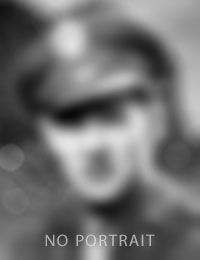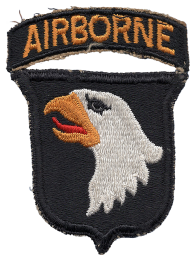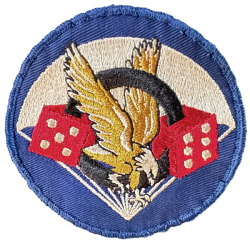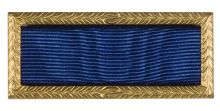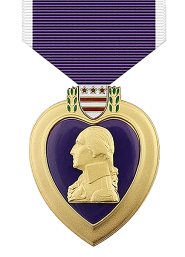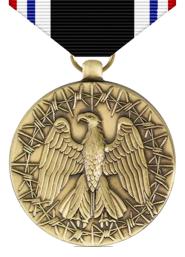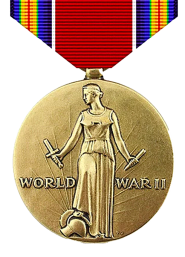Taccoa, and a Jug of White Lightening. While at Taccoa, somebody went up on a hill and got a jug of white lightning. We were celebrating our temporary ratings that we had just received. I didn’t receive one as I didn’t tell them I had ROTC training. I didn’t tell them because I didn’t want a rating, because of what I was going into. I didn’t want to be taking care of anybody else but me. While we were celebrating, somebody had a trumpet, and they were passing it around, all trying to blow bugle calls on it. I said, “A hell I can blow it better than anybody else in the barracks.” So they said let us hear what you can do. So I said, “What do you want to hear.” Somebody said blow reveille, so I blew reveille. Then they said blow a couple of other calls and I blew those. So one guy said, “I dare you to step outside the door and blow reveille.” I stepped outside the door and blew reveille. It was five minutes to midnight. People started falling out, and I blew assembly after. And they all started forming out on the street. The company commanders loud speaker came on, and Colonel Sink said, “FIND ME THAT BUGLER!” But they didn’t find me that night!
Echoing of the Bugles at Camp McCall
There was a regular infantry company on the hill above us, and they had a bugler. Every night he would blow taps. So for the fun of it, I echoed him. And the guys would lay awake and everything would go silent at that time of night. At the officer’s quarters they heard it one night. So every night at the time of taps, they would turn out their lights because of the blackout, open their windows, and they would listen for the echoing of taps. The guys said they had never heard anything so pretty. I only met the other bugler one time when he came down off the hill to meet me. And he said he really enjoyed hearing it too.
(After the war, my wife and I went to an airborne meeting in San Francisco, CA at the Palace Hotel. That is where my wife heard about the echoing of taps. Per my wife I was the hit of the night, because I had more stories about the colonel (Wolverton) and all the different things that I had done as the colonel’s bodyguard. Also when we walked into the Palace Hotel, one of the guys there saw me, and said, “Oh my God, Oh my God! You were dead! Everybody said you were killed!” He said that he had seen the letter that I had been killed. He then said, “You are standing here talking to me!” And he had tears rolling down his face. He picked me up and hugged me so hard, I couldn’t stand it. He kept repeating that I had been killed. He was in the same barracks at headquarters. All through the night he would come up to me and pat me on the hand stating, “You are alive.”)
Ramsbury, England
Ramsbury was a very tiny little village, and everybody knew me, because the kids would come up to the camp to hear me blow the bugle. And they knew me as the “Candy Man.” The other soldiers would all go out and get drunk, and spend all their money. So when it came time to get their PX rations, they didn’t have any money to buy them. They always wanted to borrow the money from me to buy their rations. They wanted to borrow five pounds (English) and pay back six pounds. I said, “No, I’ll lend you the money to buy your rations, but you give me the candy. So when they would all give me their candy, I would go into the village, and give it to the children. The kids would watch for me and come running saying, “Here comes the Candy Man!”
This little boy always came up to camp through the back trail, to hear me blow the bugle. And he would stand there and listen while I blew it. So when they took my shiny bugle away from me before we were to go overseas, and go into combat, they gave me a plastic one. So I asked Colonel Wolverton what I was suppose to do with this other bugle, and he said, “What would you want to do with it?” And I said, “There is a little boy who comes in everyday to watch me blow the bugle, and I would like to give it to him.” The colonel said, “Go ahead.” So I called the little boy over and I said, “Would you like to have this bugle?” And he said, “Can I?” And I said, “Yes you can.” He took it home, and his mother came back with him to find out for sure that the bugle was his, and I told her yes. And every time she saw me, she said that when he comes home in the afternoon from school, he takes the bugle down off the wall, tries to blow it, then polishes it, and puts it back on the wall.
Excerpt from D-Day
As I was coming down, I was in the cross fire of machine guns, and if they had moved the gun a quarter of an inch, it would have cut me in half. On the way down, I got hit in the leg, and I could walk but I couldn’t run. I didn’t get a chance to anyway, because I landed right next to a German command post. I was looking down the barrel of about seven rifles, and when I landed, they put me up against a hedge, and I knew they were going to shoot me. I heard them say “Shizen Americanish!” Shizen Americanish!” This German lieutenant came around and he stopped them, and came over to talk to me. He spoke English. I said, “You better watch out they want to shoot me.” And he said, “I am not going to let them shoot you, because I have a brother who is a prisoner of war in the United States, and I wouldn’t want anything to happen to him. But I have to admire your courage.” So he ordered the soldiers to take me prisoner instead. Then they moved me off to an area where they had a lot of the guys captured, because we were spread all over hell and gone.
I was taken to a barn with several other airborne soldiers, and we were kept there for some time. We were then walked for some time to a train and put into box cars. I never had my leg looked at during this time or at anytime I was a prisoner. We spent quite some time in the box cars, and then we were in Paris. We were walked through the streets of Paris as prisoners. Then it was back into box cars where we were kept for several months. They kept moving us around all the time. We were allowed out every two to three days, given sugar beets with some stale bread to eat. We pulled a board up in the bottom of the box car to have a place to go to the bathroom. The Germans also took our boots so we couldn’t run away at night.
Note: At this time my father was sitting in his rocking chair. He bent over and put his head into his hands. He started rocking back and forth, and then the violent shaking started. My mother sat down next to him, wrapped her arms around him as he started to cry, and I came over and took his hands into mine. He was crying and said, “Don’t ask me what we ate or did! Don’t ask me what we ate!” He then said, “I didn’t want to tell you any of this because I didn’t want you to know or be ashamed of me!” I told my father that that was the farthest thing from my mind. We stopped our talk for the day. My father was very depressed until we finally got him to sleep later.Arrival at the camp at Limburg, Germany
After several months in the box cars, we were finally taken to a POW camp in Belgium, (Don’t remember what it was called) where we stayed for just a short while. Just long enough for them to give us some stale bread. It was back into the box cars, and we were taken out again when we arrived at a very large camp in Limburg, Germany. There were British and Russian soldiers there, and we were the first Americans to arrive, mostly Airborne. Some of the British soldiers had been there since Dunkirk. (My father also said that he was told there were Jews at the camp, but he never saw them. What he remembers were the furnaces that were going day and night, and the smell of human flesh being burnt. To this day my father cannot be near the smell of lamb cooking. He says it smells the same way to him)
It was at this camp that the Red Cross was able to get my information, and passed it onto the Army. They in turn were able to send a second letter to my parents. This time they were advising them that their son was no longer missing in action, but a prisoner of war..
Donald Clifton Ross received both the Purple Heart and the Prisoner of War medal.
